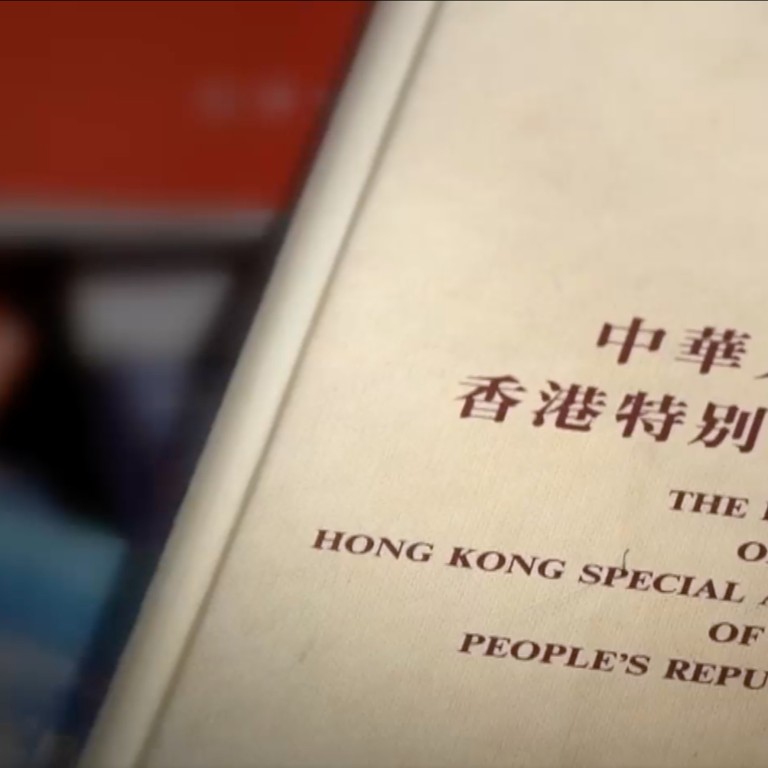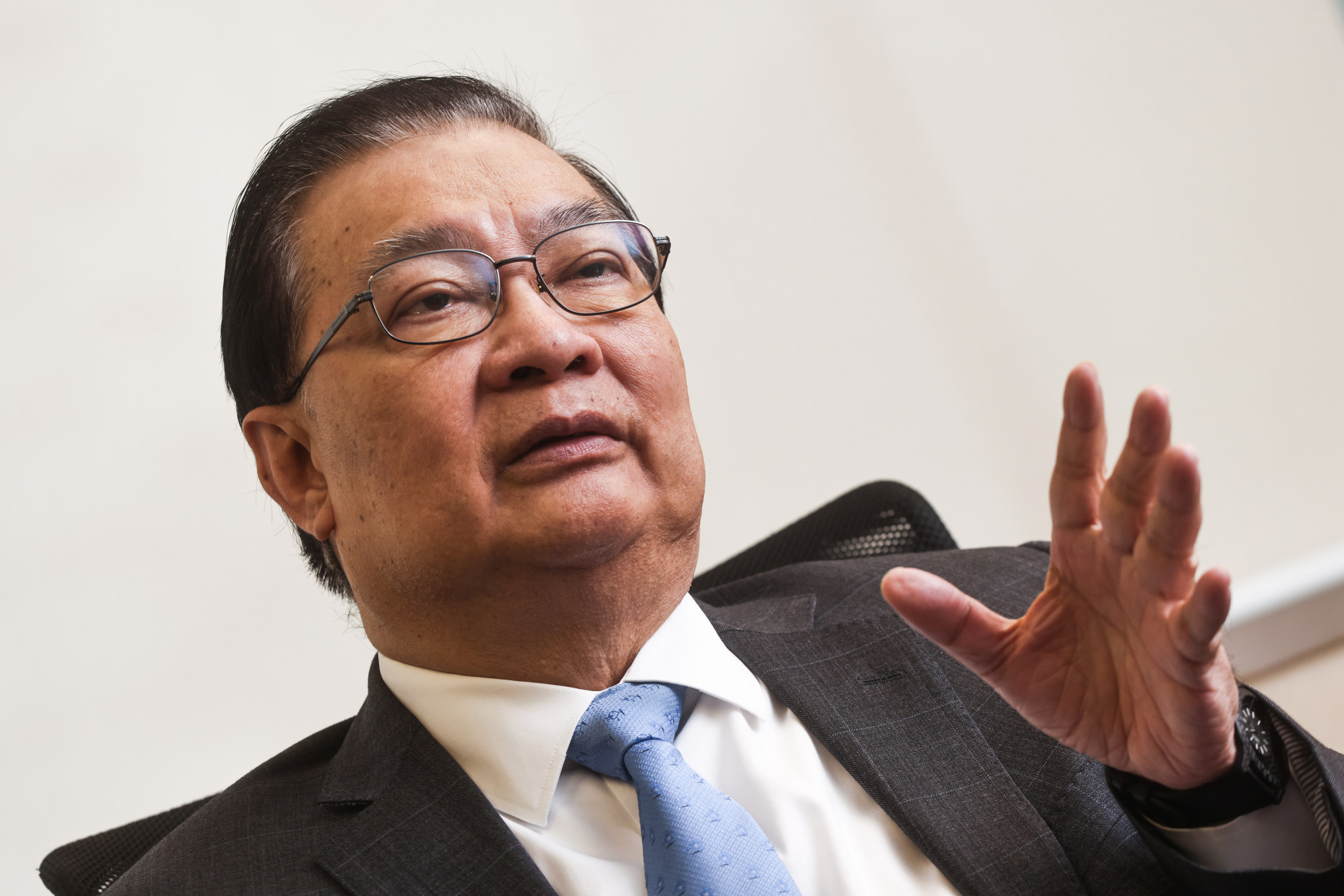
Hong Kong’s own national security legislation put on hold for further research, government says
- Bill to complement Beijing-imposed national security law removed from schedule for remaining Legislative Council meetings before Christmas
- Chief Executive John Lee says move made to allow time for more comprehensive legislation to be drawn up
A plan to enact Hong Kong’s own national security law this year has been put on the back burner by the government in a move supported by pro-establishment politicians who say more urgent issues need to be tackled.
The legislation, required by Article 23 of the Basic Law, the city’s mini-constitution, would complement the national security law imposed on the city by Beijing in 2020.
But according to the updated Legislative Council programme seen by lawmakers last week, the government plans to introduce 16 pieces of legislation by December but the national security law was among 15 others removed from the schedule.
Legislator Junius Ho Kwan-yiu said on Monday he was disappointed that the legislation had been postponed.
Gary Chan Hak-kan, the chairman of Legco’s security panel, said he hoped the government could submit the bill as soon as possible because the existing national security law was “incomplete”.
National security: what is Article 23 and why is it back in the spotlight?
Although Beijing imposed the security law to target secession, subversion, terrorism and collusion with foreign forces, it did not cover all seven offences spelled out in Article 23, such as treason, theft of state secrets and foreign political bodies engaging in political activities in the city.
“Many lawmakers hope that the government can do this soon. We are fully prepared,” said Chan of the Democratic Alliance for the Betterment and Progress of Hong Kong
But New People’s Party lawmaker Lai Tung-kwok, a former security and immigration chief, said it was better for the government to take time than to rush through the bill, which he said was a “sensitive topic”.
“Since John Lee took office, all ministers have been busy on delivering on new policies in the first 100 days, and now all eyes are on Lee’s maiden policy address on October 19,” he said, adding there was not enough time for the legislature to complete the 16 bills that remained on the order paper at the meetings before December.

Tam Yiu-chung, the city’s sole delegate to the country’s top legislative body, the National People’s Congress Standing Committee, agreed.
“When the international situation is so complicated, it’s more important for us to think carefully and handle other more urgent issues,” he said.
“We already have a national security law imposed in 2020, we need to wait for the right time to enact this new one.”
A Beijing loyalist politician, who asked not to be named, said: “The government is expecting more instruction from Beijing after the 20th party congress in Beijing later this month.”
The legislation was put on hold after Chief Executive John Lee Ka-chiu’s said in July that he preferred not to rush the drafting of the contentious law as he wanted it to be comprehensive – seen by some as a climb down from an election pledge.
The government, under the leadership of Lee’s predecessor Carrie Lam Cheng Yuet-ngor, wrote to the Legislative Council’s house committee in January, telling the body that various bureaus intended to submit up to 37 bills by December, including the Safeguarding National Security Bill in the latter half of the year.
Lee said during his run of the city’s top post that one of his priorities was to enact the Article 23 legislation.
But he later revealed his administration wanted to spend more time conducting legal research so the new law would handle be able to handle “all kinds of problems” without the need for amendments.
New Hong Kong leader says local national security law will not be rushed
A spokesman for the Security Bureau said that city legislation on Article 23 of the Basic Law was the constitutional responsibility of Hong Kong.
“The government will continue to actively promote the legislative work of Article 23 of the Basic Law, and will launch public consultations in due course,” he added.
The postponed legislation also included a contentious bill which would allow physical and occupational therapists to offer services without referral from a doctor, as well as one to increase the retirement age of newly-hired teachers from 60 to 65.
Also among the 15 bills removed from the legislative programme, were four withdrawn by the Financial Services and the Treasury Bureau.
They included an inland revenue amendment bill to implement the base erosion and profit shifting (BEPS) 2.0 model, an international bid to set a global minimum tax rate designed to tackle the problem of multinational firms avoiding tax in their home countries.
Finance sector legislator Ronick Chan Chun-ying told the Post that the bureau decided not to rush the bill after listening to the business sector’s concerns.
“The bill involved a lot of technical amendments which may have repercussions for the city’s business environment,” he said.

